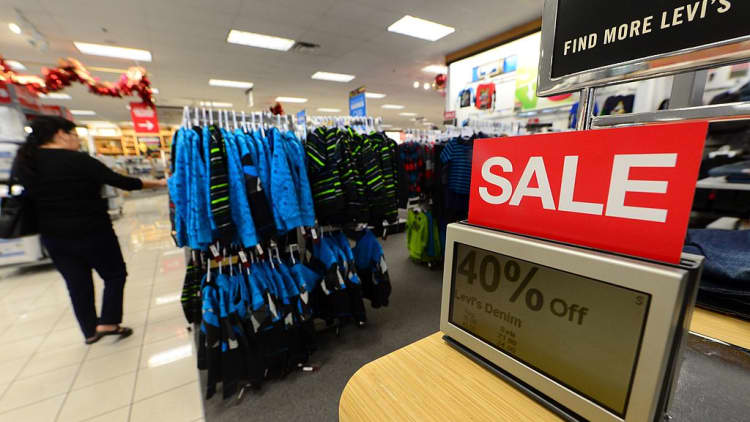
Weak mall traffic, changing spending patterns and looming store closures.
Despite early sales reports pointing to a solid holiday season, many of the specialty apparel chains that presented at this week's ICR Conference in Orlando, Florida, spoke to the difficulties they encountered during the critical shopping period — with most taking a measured approach to 2017.
"It certainly seemed to be a somewhat more challenging [macroeconomic] environment," L Brands' CFO Stuart Burgdoerfer told analysts during a presentation Wednesday.
"It's a very tough environment out there," echoed Sandeep Reddy, CFO of the global fashion brand Guess, during his firm's session.
"The highs are higher and the lows are lower," said Frank Conforti, CFO at Urban Outfitters, speaking to the exaggerated cadence of consumer spending throughout the season.
The executives' comments came amid a slew of sales holiday sales reports that highlighted just how tough things are for legacy apparel retailers. Same-store sales at Ann Taylor parent Ascena Retail dropped 3.1 percent, forcing the company to run unplanned promotions to clear through its inventory. Though Urban Outfitters' comparable sales were roughly in line, it too was pushed into heavier-than-anticipated promotions.
Even L Brands posted a rare same-store sales decline in December, as the Victoria's Secret label continued to work through an overhaul of its promotional and merchandising strategies. Headwinds will remain in the first half of 2017, as Victoria's Secret grapples with sales lost from its discontinuation of swimwear and most apparel categories.

The soft performance at specialty apparel shops was largely expected. On Monday, a report from First Data showed that retail spending rose 3.6 percent during November and December. Yet the firm, which pulled its figures from more than 942,000 cash registers, said sales at clothing and accessories stores ticked just 0.1 percent higher.
It wasn't all bad news. Athletic wear company Lululemon and American Eagle's Aerie brand were bright spots in specialty apparel. And in home goods, both Wayfair and At Home had a strong season.
"From the ongoing popularity of athleisure to the high demand for cosmetic and beauty, brands can fuel sales if they can deliver newness," Dana Telsey, CEO of Telsey Advisory Group, told investors.
Looking ahead to 2017, there was a sense of caution among both companies and analysts. Uncertainties remain about consumers' changing spending patterns, including the shift to online and their hyper-promotional focus. The industry is also grappling with potential changes to the tax policy that could make it more expensive for them to import goods from overseas.
And as store productivity declines, several chains are looking at co-tenancy agreements and lease expirations as a means to exit undesirable stores or negotiate better terms. Co-tenancy agreements can be triggered when an anchor tenant like Macy's decides to exit a mall.
Both Guess and American Eagle have hundreds of leases coming up for renewal over the next two to three years. The silver lining is recent store closures may tip the power back into retailers' favor.
"We can't remember a time over the past 10 years when the companies we cover were so consistently citing lower rents," Morgan Stanley analyst Jay Sole, who specializes in branded apparel and footwear, told investors. "However, as retailers leave malls, particularly anchor tenants, co-tenancy lease clauses are coming into effect for remaining stores and this is giving retailers big negotiating leverage."



